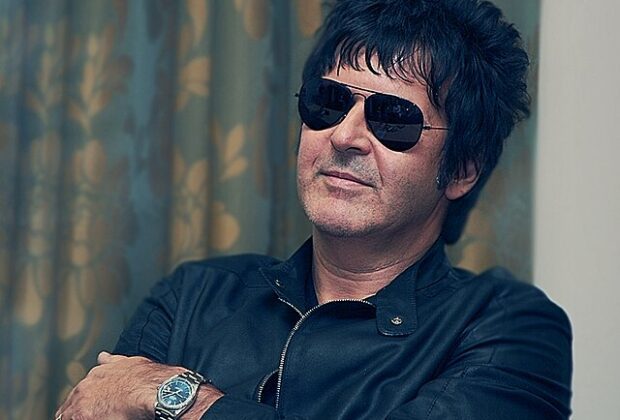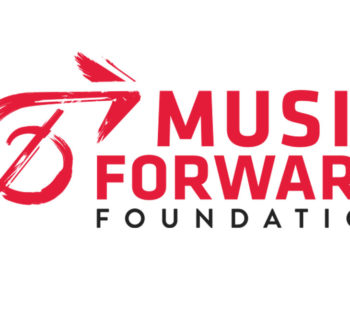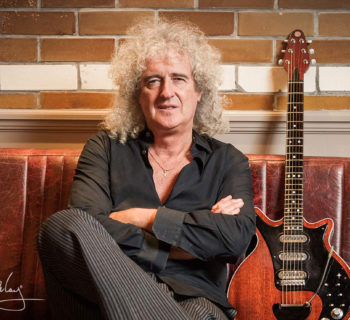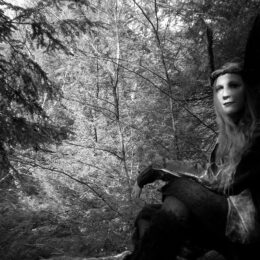"It is with profound sadness that we relay news of the passing of our beloved friend and bandmate Clem Burke following a private battle with cancer," the band wrote in a statement. "Clem was not just a drummer; he was the heartbeat of Blondie. His talent, energy, and passion for music were unmatched, and his contributions to our sound and success are immeasurable. Beyond his musicianship, Clem was a source of inspiration both on and off the stage. His vibrant spirit, infectious enthusiasm and rock solid work ethic touched everyone who had the privilege of knowing him."
I first met Clem on Blondie’s first U.S. tour when they debuted at the Whisky A Go Go nightclub in Hollywood in 1977. We went out and saw another band at Madame Wong’s in China Town after the show as I recall. Burke is as vital to Blondie’s sound as Charlie Watts is to the Rolling Stones. The New Jersey born, New York raised Burke is now a neighbor of mine locally, and is a true and passionate fan of music. He’s still a student of rock ‘n’ roll and a record collector.
A couple of years ago I interviewed him for a documentary on Gold Star recording studio. Over the years I interviewed him for articles and books.
Clem was one of the nicest people I ever encountered. He was always the first person to email me when I had a new book out.
This decade I spent Thanksgiving with Clem and his wife Ellen at their home in Southern California.
Q: Over the last quarter of a century your group Blondie have had songs in TV commercials and over a dozen tunes placed in feature length movies; “Call Me” was the title song of “American Gigolo,” “Atomic” was in “Bend It Like Beckham,” and last decade was covered by Sleeper in “Trainspotting.” “The Last American Virgin” showcased “In The Flesh,” while “One Way Or Another” was put into “Little Darlings.” Blondie music has been integral in “Gia,” an HBO film, while I know your “Rapture” has also been heard on screen as well you even dance in the music video Blondie did for “Rapture.” And “Rapture” in 2004 was in an episode of Fox’s “Nip/Tuck” TV series.
What are your feelings about the relationship between music and film, and the usage of your recording and publishing catalogue?
A: A lot of our songs are lush and the imagery is basically cinematic. We’ve always been influenced by film and obviously Andy Warhol. And the visual arts have always been an influence on us. I mean, in our song, “Fade Away and Radiate” Debbie (Harry) sings “My dream is on the screen.” Our song “Platinum Blonde,” the only movie I believe that was in has been Amos Poe’s “The Blank Generation.”
Q: “Call Me” was the opening track title for the movie “American Gigolo.”
A: That was the only song that was actually written for a film. (Producer) Giorgio Moroder originally approached us to do one of his songs that he’d completely written called “Man Machine.” It was a basic boogie more stripped down song, and then Debbie wrote the lyrics to “Call Me” which was more from a woman’s perspective. The recording process with Giorgio Moroder was a little different, and he was a bit more particular how the track would go down and how it was recorded. And so in that respect I played a little differently because I was working with a different producer, and I try and work with the producer, not against the producer. So I did probably play a little differently on that. The weird thing about “Call Me” was that we did it and I forgot about it, and went on tour for six months and came back. I remember getting picked up at the airport and the radio got turned on and there was this song that came on and sounded kind of familiar, and wasn’t really sure, and it was “Call Me.” That was like a real one off experience. In the studio for one day recording that track. Richard Gere came down to the studio when we were recording it and that was cool. He’s a good guy. He was doing the play “Bent” on stage at the time. It’s amazing how many actors are musicians, and he’s one of them.
Q: What are your feelings about music videos in general?
A: It took me a long time to latch on to conceptual music videos. I like lip-synching. I like the Monkees. I like all that kind of stuff. Many bands lip synched on “Ed Sullivan.”
Performing in front of the camera as a pop musician I thought was cool. That kind of stands to reason that a lot of the aesthetics that are involved in the whole Blondie set up are sort of out of the box of what the norm of maybe what punk rock was supposed to be. It had a lot to do with our commercial success. Because we never really shunned commercial success, we kind of embraced it and we kind of embraced the whole Warhollian aesthetic of art as commerce. And especially in England and in Europe we were more active in music videos and TV music shows where our music was on the screen.
We were sorta bailing out when MTV first hit. If anything, it was probably one of the worst business moves we ever made as the band was fragmenting right with the advent of MTV. Had we been there…MTV came to us early on. The bands in their ads. “I want my MTV” and all that. I thought live performance where you weren’t lip synching would be the best medium for video, capturing a specific live performance. Like “The Last Waltz.” Or “Don’t Look Back.” Something that preserved an honest performance, as opposed to a story boarded thing.
We did our first couple of videos directed by rock photographer Bob Gruen, who took John Lennon’s passport visa shot. We were also on quite a bit the chart show in England “Tops Of The Pops.” At that particular time they refused to use video. It shows you how much times have changed. They wanted you in the studio, and you were actually supposed to re-record your track in a studio in Great Britian. We had several “pretend” recording sessions for “Tops Of The Pops” where an actual member of the British Musicians Union would be sitting there in the control room, and we’d be in the studio pretending to record the song, when in fact we were using the multi-track of the actual song. One of the most embarrassing things was a song “Denis” a number one song from our second album. It’s all out of time, and when you isolate the tracks it’s very obviously out of time, for instance, the handclaps and the foot stomps that were on it. So we were out in the studio going, “We gotta get that right.” But in fact it was the hit record we were pretending to be re-recording but everything was out of time on the hit. So that was an embarrassing situation.
Q: What about songs in television commercials. You and the band don’t seem to be so righteous and afraid of the corporate tie in when lending your music to overt commercials for products.
A: We’ve licensed “Atomic” to Pepsi, “One Way Or Another” for Mazda, and an irony of all ironies, the I.R.S, various members of the band have had serious tax problems over the years, the I.R.S. was licensed “One Way Or Another” which has the line “We’re gonna get you,” (laughs). From our point of view we’ve never had the big meeting about songs for commercials. It’s kinda like pop art. Having the Ramones’ song “Blitzkrieg Bop” in the Mobil commercial I think is tremendous. They come to us. There is a “pitching geek” within the whole approach to the band to consider songs for placement. We’re not Bruce Springsteen…I respect that…We don’t have the kind of money he has. Our management did demographic research about all of that stuff to pitch everything. It’s amazing how much of our stuff has been utilized in films.
Q: Why does Blondie work well in the visual medium?
A: There’s a younger fan base discovering us and one of the main attributes is that Debbie has a really huge head. That’s almost rule number one for being a TV or movie star, ya know. There’s that whole thing of “I thought they’d be much taller than that.” It’s not the height, but the dimensions of the head, Debbie has probably one of the biggest heads in the business and I don’t mean that factiously. She does. The band just has a charisma in general and a lot of that is attributed to Debbie as well.
Q: What are some of the soundtracks that you own?
A: “Super Fly” by Curtis Mayfield. Amazing soundtrack and amazing record.
“Privilege” is a great movie and a great soundtrack. Paul Jones in the movie and the songs Mike Leander arranged for it. “Free Me” and “I’ve Been A Bad, Bad, Bad Boy.”
It was probably viewed as controversial because it mixed religion and music. Sort of like Bono now. “High Fidelity” was an entertaining movie. We understood that.
Hands down my favorite soundtrack of all time would be “Blow Up” Herbie Hancock…”Blow Up” is an endless source of inspiration…The Yardbirds doing “Stoll On…” “Performance,” “Memo To Turner…” What about the first time you heard something like that? Really great. Jack Nitzsche was making great music for films.
“West Side Story” is one of my favorite movies and soundtrack albums. The songs…What a glimpse into New York City street life. The Nice did “America,” and PJ Proby covered “Somewhere” from it.
“The Thing You Do” is really a great movie that captures what it’s like being in a band. The cast. “Back Beat” was great. I cried at the end.
The Beatles’ “A Hard Day’s Night”’ Blew my mind. The most enduring thing about that movie was seeing the Beatles as human beings. Walkng, talking and eating…Funny human beings. I loved the way the Marx Brothers incorporated music into their films way before rock ‘n’ roll. I liked “Help!” a lot, too. For me, I like the songs better than “A Hard Day’s Night.” 1966 come on! “Let It Be” is essential viewing for anybody in a rock band. I think you have to be in a band or involved in the music business to really get the dynamics of what is going on in that film and all the baggage on display. I saw “Let It Be” before I was ever in Blondie. “Let It Be” is a learning tool. Art is really there to learn from generally, especially if you are in the arts. That movie evolves as you evolve as a human being.
I like “Monterey Pop,” if nothing else for the Who, (Jimi) Hendrix and Otis Redding footage. I liked “Woodstock” at the time but it’s not a film that I go back over and over to watch it like “Performance,” “Privlige,” “Don’t Look Back,” “Bangla Desh” or “The Last Waltz.” The music of the “Woodstock” era has not endured for me the same way Iggy Pop or David Bowie has. The Monkees’ “Head” was hard for me to watch. I loved their TV show. More concise and edited. It was under control. Maybe with “Head” they all were out to destroy the Monkees. “The Harder They Come” is a great movie about the
Music business. A phenomenal reggae music soundtrack. The Who’s “Quadrophenia” was terrific. The soundtrack is just as good as the film.
I really like “The T.A.M.I. Show” and “The Big T.N.T.” The black and white concert films. “T.A.M.I”. had James Brown, The Supremes, Chuck Berry, The Rolling Stones. T.N.T. had The Byrds, The Lovin’ Spoonful, The Ronettes, Ray Charles. Donovan. I really like the Frank Sinatra movie “The Man With The Golden Arm” with the Elmer Bernstein score. That’s brilliant.
8 Mile is great. Eminem was good on screen. I’m very familiar with that part of the country. Eminem walked off the street into my friend’s studio.
Elvis Presley… ”Jailhouse Rock,” “King Creole,” and “Kid Galahad.” The only one that is horrible is “Change Of Habit.” “Viva Las Vegas” was a great movie. Just Elvis’ sexuality and all his interaction with all those cool chicks in it. His movies were microcosms of an era too, and out of synch with the times, in some ways they still kinda reflect the times at the same time. The songs in the movies. I really liked his concert movies. “The Way It Is.” He didn’t seem larger than life because in some ways he was before my time in a way. I think people that are in one’s time seem to become mega larger than life more so than people that are so more kind of mythical. Elvis was cool and had one of the best voices. His films were movies inside of movies in a way. I think the only time Elvis seemed bigger to me was when he died in 1977. When the whole punk rock thing was going on and it added an extra meaning to me. Like all of a sudden there was no Elvis Presley only Elvis Costello, which was kinda strange…
Photo from Wiki Commons, by shiver_shi














